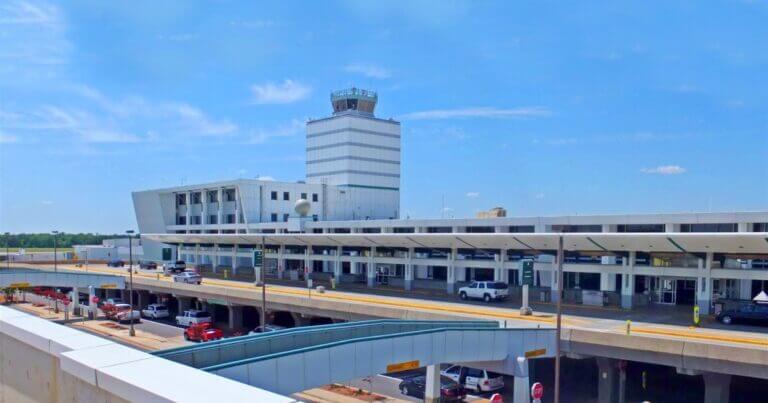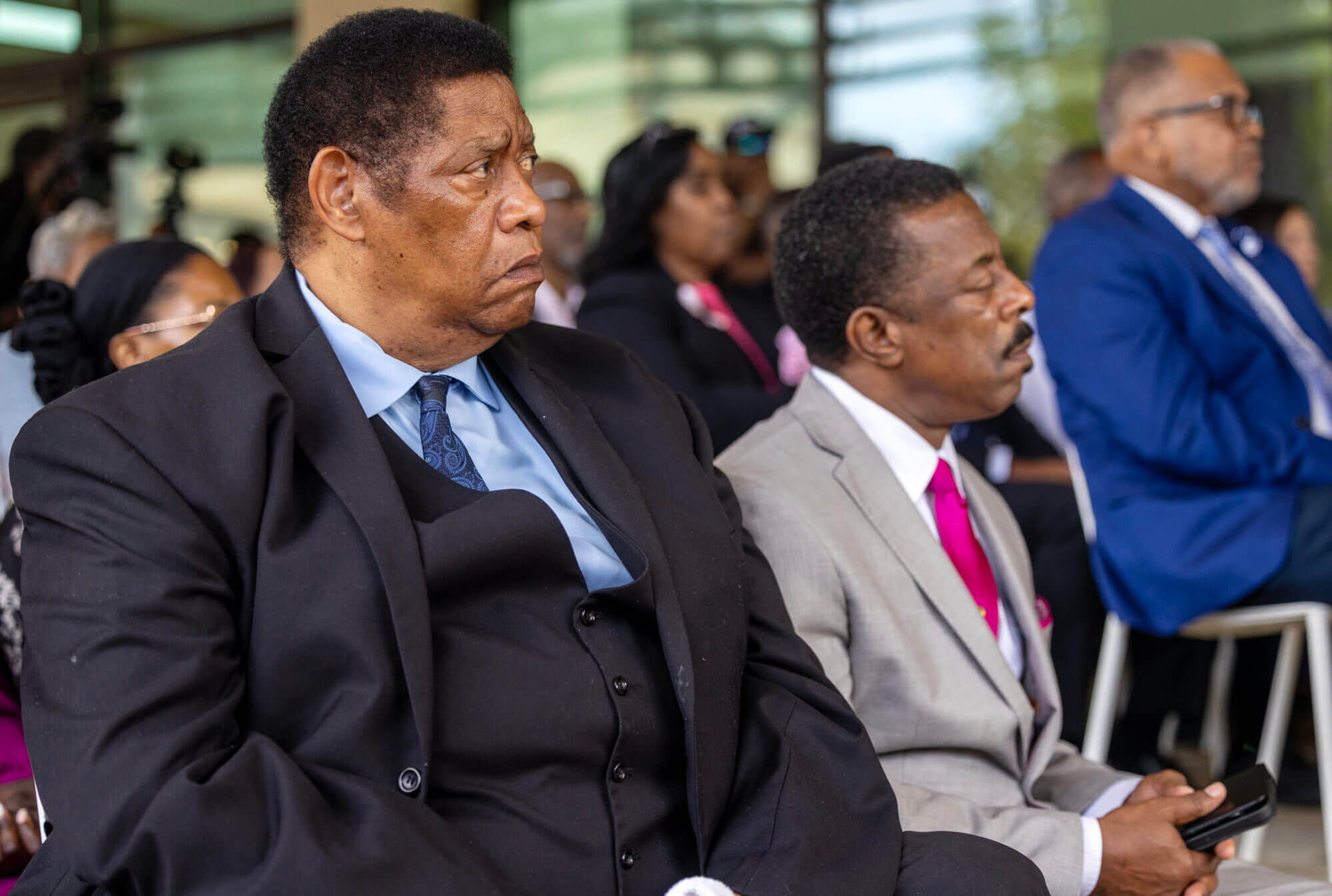

The city of Jackson will continue to own thousands of acres surrounding its airport under a settlement that is expected to clear the way for economic development on what’s long been considered some of Mississippi’s most coveted real estate.
The agreement was approved by the Jackson City Council by a 5-2 vote Tuesday. It allows Flowood and Pearl, growing cities in Rankin County, to annex Jackson-owned but currently unincorporated land to the west and east of the Jackson-Medgar Wiley Evers International Airport. The deal seeks to conclude a seven-year-old lawsuit in which those suburban cities sued to incorporate some of the land.
The airport is a few miles east of downtown Jackson. It is in Rankin County and is the rare example of a Mississippi city owning land outside the county where the city itself is located.
Through the annexation, the municipalities must now provide essential services that can entice development to the acres of currently empty, grassy land along Airport Road and the East Metro Parkway, a major thoroughfare in Rankin County. Jackson also gets to incorporate a portion of the land around the airport into the capital city as part of the deal.
The council’s vote comes amid a separate, nearly decade-long battle over governing control of the city’s airport, which the deal passed Tuesday does not impact.
“It’s very ripe for having a high-end development for office space, retail space and other space like that,” said Ward 1 Councilman Ashby Foote, likening the area’s potential to that of Highland Colony Parkway in Ridgeland. “But it’s just been on hold because of the confrontation surrounding the airport.”

The arrangement concerns the minutiae of Mississippi land law and what it means for a city to own versus incorporate land, said Councilman Kevin Parkinson, who oversees Ward 7 where the airport is located. He filmed a 14-minute YouTube video explaining why he supported the agreement.
“All of our fates are tied up together, and we can’t continue to fight each other if there’s ways for things to be mutually beneficial,” Parkinson said.
The Jackson airport has owned the land for decades and could have leased it for development, but since the land was not city-incorporated, Jackson was not providing essential services like water, police and fire protection, making development difficult.
Under Tuesday’s agreement, the city of Jackson will continue to profit off any leases on land it owns because the airport will essentially act as a landlord for developers.
“It’s not like Flowood is going to put a bunch of undesirable businesses there with no insight from the airport,” Parkinson said. “That’s what it means to own the land. You get benefits, including you can simply say, ‘Nope, I don’t want that business here.’”
Meanwhile, Flowood and Pearl will provide services in their respective incorporated areas, and in turn collect the property tax and sales tax revenue generated there.
This is what Ward 3 Councilman Kenneth Stokes, who voted against the measure, said causes the “bad taste that’s in a lot of citizens’ mouths,” as they’ve witnessed a boom of sales-tax-generating development along Lakeland Drive in the last couple of decades, mostly benefitting Flowood.

“The question that came up when they were doing it is: How how in the world this is supposed to be airport property, but the city of Jackson gets not a dime in sales tax? So they feel there’s some trickeration taking place,” Stokes said during Tuesday’s council meeting. “And they feel the same thing is going to happen with this. They feel this is a slow way to take the airport.”
The two suburban cities also agreed to support Jackson’s request to annex parts of the land around the airport.
“Rather than a point of contention, it needs to be a point of one plus one equals three rather than one plus one equals zero,” Foote told Mississippi Today.
Pearl Mayor Jake Windham could not be reached for comment Wednesday. Flowood Mayor Kathy Smith was out of the office for a ribbon cutting, her assistant said.
A statement from Jackson Mayor John Horhn heralded the agreement as a win for the capital city, noting that the airport-owned land will benefit from the water and sewer system that Pearl will set up within the next year and a half.
“This deal does not give away one inch of land,” Horhn’s statement said. “The City of Jackson remains proud owner and steward of the airport and its surrounding lands, and we are committed to ensuring that this partnership strengthens, rather than diminishes, our city’s economic future.”
The vote also seeks to end to a legal dispute between Jackson, Flowood and Pearl that began in 2018 after the latter two cities filed a lawsuit to annex thousands of acres around the airport.
Parkinson said he voted for the deal in part to avoid a trial in the lawsuit, which the cities filed in Rankin County. Not only did he believe a Rankin County judge would be more favorable to Flowood and Pearl, Parkinson said the judge would have only been able to rule on whether those two cities can annex the land they wanted — leaving no path forward for Jackson to annex the airport land that it wanted.
As a bargaining chip at the settlement table, the two cities offered to go to Rankin County to help Jackson’s annexation request, Parkinson said.
“To their credit, Pearl and Flowood came to partner, they came to negotiate,” he said.
Jackson’s Ward 2 Councilwoman Tina Clay joined Stokes in voting no on the deal.
Correction 10/22/25: This story was updated to reflect that Kenneth Stokes and Tina Clay voted against the agreement.
- ‘We can only go up from here’: Hope and apathy in Wilkinson County schools - February 28, 2026
- Community discussion grows around 24-hour child care in Hattiesburg - February 28, 2026
- Democrats say FEMA’s pause on long-term recovery projects is ‘just being mean’ - February 28, 2026